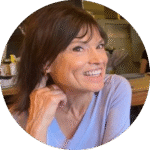Listen now!
Don’t want to miss a single episode of Solidarity Speaks?
What preceded: the U-turn series
In 2020 and 2021, UCSIA published two books in which Flemish experts viewed the pandemic as an opportunity for a societal U-turn. Five years later, we ask ourselves: has that turnaround actually happened?
The reality is harsh. Geopolitical conflicts, the climate crisis and the rise of populism have overshadowed the hope for structural change.
Listen to the previous episodes of Solidarity Speaks:
The promise of a U-turn
When the pandemic broke out in 2020, many quietly hoped that COVID-19 would be a turning point. New forms of solidarity, a reinvented welfare state, perhaps even a change in mentality. But according to Professor De Munck, that optimism was never truly realized.
“During the pandemic, there were people who truly hoped for societal change. In my view, that did not happen,” he says. What did happen, according to him, was that the existing mechanisms of scenario thinking, preparedness, and the desire to make the future as predictable as possible were only reinforced.
A society anticipating disasters
A central theme is the rise of scenario thinking, which has largely displaced traditional strategic planning. Whereas strategic policy once started from past trends, today it increasingly works with possible future disasters: pandemics, climate crises, wars, cyberattacks…
Jorgen Stassijns understands that logic: “A scenario offers something to hold on to. It is a framework that creates predictability and a certain sense of security.” Yet he also realizes that scenarios have their limits: how general or how specific should such a script be? And how far ahead can you really see when – as with COVID-19 – you barely know what you are dealing with?
"Since the pandemic, there has been a growing number of preparedness plans. These arise in a climate where we feel that disasters are looming. Not only pandemics, but also the climate crisis and war play a role. This creates a democratic problem, because you end up in a situation where it is easy to say that there is no time for debate, for checks and balances, and for ethical reflection."
Bert De Munck, historicus Universiteit Antwerpen
Democracy under pressure
Both national governments and international organizations are now investing heavily in preparedness. New or revised contingency plans, new structures, reactivated risk procedures.
But it is precisely there that Professor De Munck sees a danger: the constant climate of urgency in which decisions are made faster than public debate can keep up with.
“That creates a democratic problem,” he says. “You end up in a situation where it becomes very easy to say: there is no time now for debate, for checks and balances, and for ethical reflection.”
Jorgen Stassijns adds some nuance: “When something like this happens, decisions have to be made quickly. What kind of democratic process can you have during an outbreak like this? I think that is very difficult.” We can prepare ourselves for it, though. In fact, that debate is one we should be having now, before the next crisis arises.
“When something like this happens, decisions have to be made quickly. During a crisis such as COVID, it is very difficult to have an in-depth debate about certain fundamental values. But that is something we must do now. We cannot wait for the next pandemic.”
Jorgen Stassijns, crisiscoördinator Sciensano
A technical perspective on a human crisis
Both guests acknowledge that the pandemic was approached primarily as a technical problem. Virologists, epidemiologists, and medical experts took centre stage, while there was hardly any room for ethical questions—about quality of life, social isolation, or the severity of measures.
“In the background, profound ethical questions are at play that are not being asked in the meantime,” says Bert.
Jorgen acknowledges that the retrospective evaluations were also mainly technical: were the diagnostics effective, were there enough vaccines, did the testing policy work? “But did we show enough solidarity, and did we include the vulnerable groups? That received far less attention.”
The price of polarization
The pandemic revealed not only policy problems, but also deep fault lines in society. Those who questioned the measures or vaccines quickly felt cornered.
“Polarization emerged during the pandemic,” says Bert. “There was no dialogue between those who disagreed and the groups that did support the policy.”
“The result, according to him, is a growing resistance to science and government, which is re-emerging in other health issues, such as measles vaccination.”
Towards a broader perspective on crisis policy
For Jorgen Stassijns, an important lesson lies in breaking the monoculture of expertise. He advocates advisory bodies in which different disciplines and sectors are represented: sociologists, psychologists, ethicists, but also people who are close to vulnerable groups.
In addition, clear and empathetic communication is crucial: acknowledging that not everything is certain and that recommendations are sometimes based on incomplete knowledge. When there is uncertainty, it must certainly not be disguised.
A final challenge is the hard‑to‑reach groups. How do you involve them in your preparation?
A future with more dialogue than control?
Bert De Munck warns against a society that increasingly relies on technocratic solutions and surveillance systems. According to him, it is essential that policy continues to allow for alternative perspectives, and that there remains space for dissenting voices without immediately dismissing them as irrational or dangerous.
Because a society that cannot tolerate plurality will, in the long run, lose not only trust but also resilience.
"What do we consider a successful approach to a pandemic? Is it having as few deaths as possible, as few people falling ill? Or ensuring that society keeps functioning? Or that people's well-being is respected? Experts also differ on these questions. A virologist will say: as little virus as possible. A sociologist will say: as much well-being as possible. There is no consensus on how to assess whether we have handled COVID well."
Jorgen Stassijns, Sciensano
What have we learned?
The conversation ends without simple answers, but with a clear direction: anyone wishing to prepare for the future must look beyond models, figures, and measures.
The greatest challenge may not be the next pandemic, but the way in which we, as a society, learn to deal with uncertainty, differences of opinion, and fundamental values.
Sign up for our newsletter and stay up to date on new episodes and events!
Listen to the previous episodes of Solidarity Speaks:
What does the future hold?
In the spring of 2026, UCSIA will organize the lecture series U-Turn: 5 years later, in which we take stock: has the pandemic truly changed us?
Topics such as loneliness, addiction, citizens’ initiatives, and authoritarian leaders are addressed. We continue to search for hopeful perspectives in a world full of challenges.
Want to know more about U-turn: 5 years later?
Contributors to this episode
Colophon
Host: Linda De Win
Guests: Bert De Munck (University of Antwerp) and Jorgen Stassijns (Sciensano)
Editors: Kaat Somers and Erik De Bom
Production: Kaat Somers and Marijke Celis
Communication: Marijke Celis
Editing and mixing: AV Inspire
Music: Giuseppe Minervini
Voice intro & outro: Gilke Gunst

Linda De Win
Linda De Win is a journalist. She worked for over 30 years at the VRT news service, where she specialized in reporting on domestic politics. She worked for Het journaal, Terzake, and De zevende dag. From 2006 to 2021, she hosted the parliamentary programme Villa Politica.
By training, she is historian. She completed her bachelor’s degree at UFSIA and her master’s degree (specializing in contemporary history) at Ghent University. She is passionate not only about her field of study, but also about everything happening in society. She currently works as a journalist, podcast host, and moderator.

Bert De Munck
Bert De Munck is full professor in the Department of History at the University of Antwerp. He teaches, among other subjects, Early Modern History, Theory of Historical Knowledge, and History of Science and Society. He is a member of the Centre for Urban History and the Urban Studies Institute.
His research lies at the intersection of social history and the history of religion, science, and knowledge. More specifically, he focuses on the valuation of knowledge and skills, the role of knowledge and worldviews in governance and political thought, and epistemological developments within historical research in general.
He recently published the book How the World Turned into a Laboratory: The Long Road to the COVID-19 Pandemic (Ethics Press, 2025).

Jorgen Stassijns
Jorgen Stassijns is a physician, specialized in tropical medicine and public health. Since 1998, he has worked for Médecins Sans Frontières (MSF) in humanitarian crises in, among others, South Sudan, Kenya, Guinea, Siberia, Sierra Leone, and Belgium. Between 2010 and 2016, he was MSF’s malaria expert, and afterwards he specialized in antimicrobial resistance at the Institute of Tropical Medicine and with MSF.
Since 2022, he has been working as a crisis coordinator at Sciensano, the national institute for public health, where he was closely involved in managing the COVID-19 pandemic. He is also coordinator of the Belgian Risk Assessment Group (RAG), which monitors (inter)national signals and conducts risk analyses, and he plays an active role in the preparation for and management of national public health crises.
Read more about…
